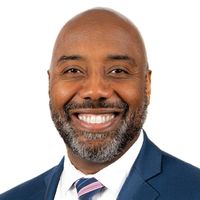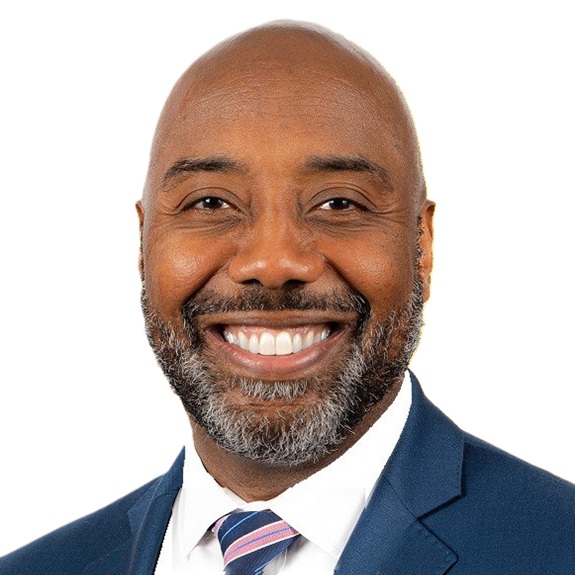Five Financial To-Dos to Help You Stay on Track in 2024
These financial planning steps can help ensure your financial wellness for the rest of the year, so take some time to look at your goals, debt, taxes and more.


Profit and prosper with the best of Kiplinger's advice on investing, taxes, retirement, personal finance and much more. Delivered daily. Enter your email in the box and click Sign Me Up.
You are now subscribed
Your newsletter sign-up was successful
Want to add more newsletters?

Delivered daily
Kiplinger Today
Profit and prosper with the best of Kiplinger's advice on investing, taxes, retirement, personal finance and much more delivered daily. Smart money moves start here.

Sent five days a week
Kiplinger A Step Ahead
Get practical help to make better financial decisions in your everyday life, from spending to savings on top deals.

Delivered daily
Kiplinger Closing Bell
Get today's biggest financial and investing headlines delivered to your inbox every day the U.S. stock market is open.

Sent twice a week
Kiplinger Adviser Intel
Financial pros across the country share best practices and fresh tactics to preserve and grow your wealth.

Delivered weekly
Kiplinger Tax Tips
Trim your federal and state tax bills with practical tax-planning and tax-cutting strategies.

Sent twice a week
Kiplinger Retirement Tips
Your twice-a-week guide to planning and enjoying a financially secure and richly rewarding retirement

Sent bimonthly.
Kiplinger Adviser Angle
Insights for advisers, wealth managers and other financial professionals.

Sent twice a week
Kiplinger Investing Weekly
Your twice-a-week roundup of promising stocks, funds, companies and industries you should consider, ones you should avoid, and why.

Sent weekly for six weeks
Kiplinger Invest for Retirement
Your step-by-step six-part series on how to invest for retirement, from devising a successful strategy to exactly which investments to choose.
For many people, the new year represents new beginnings and the opportunity for a fresh start in different areas of their lives. It’s also a great time for a financial checkup. Consider creating and carrying out a list of financial to-dos for the year ahead.
From taxes to asset allocation to legacy planning, there are several areas of wealth management to consider — and they can be difficult to course correct once they’ve veered off track. Here are five steps you can take to stay on top of your financial wellness — and carry that momentum all through the year.
1. Take time to evaluate your goals.
Start by putting pen to paper and mapping out your expectations for the new year — or, if you’ve already done so, revisit them. If you’re intent on increasing your savings account balance by $10,000 before year-end, for example, figure out what it will take to achieve that goal. Some simple napkin math will give you a sense of what your monthly 2024 budget should look like.
From just $107.88 $24.99 for Kiplinger Personal Finance
Become a smarter, better informed investor. Subscribe from just $107.88 $24.99, plus get up to 4 Special Issues

Sign up for Kiplinger’s Free Newsletters
Profit and prosper with the best of expert advice on investing, taxes, retirement, personal finance and more - straight to your e-mail.
Profit and prosper with the best of expert advice - straight to your e-mail.
When it comes to choosing your financial goals, don’t just jot down a few cursory nice-to-haves. Going away for a long weekend can give you the perspective and renewed focus you’ll need to start crafting a roadmap for the year ahead.
2. Focus on debt reduction.
No one likes to be saddled with unpaid debt. To get a fresh start in 2024, try to get free of debt — or at the very least, try to pay down high-interest debt like credit cards and personal loans as soon as possible.
Once that’s done, you can reassess what is your largest debt obligation. For many people, this may be their mortgage. Sure, refinancing is an option, especially as mortgage rates begin to cool. But if you have extra cash on hand, consider mortgage recasting — that is, making a lump-sum payment toward its principal. Doing so can lower your interest expense over the life of the loan and help you get debt-free quicker.
Settling financial obligations can be difficult, but it’s possible with some clever budgeting. High earners making over $160,200 may end up fully funding their Social Security contributions early through payroll deductions. If you’re one of them, you could plan to set aside 6.2% of your paycheck — the percentage you were paying into Social Security — for clearing debts afterward.
If you received a lump-sum payment from an inheritance or bonus, diverting it to pay off debt may also be a great option. The benefit of investing these sudden windfalls often doesn’t outweigh the risk of letting interest accrue unchecked.
3. Reevaluate your portfolio.
In case the financial landscape remains rocky in 2024, make sure your portfolio aligns with your tolerance for risk. For example, if your goal at the beginning of last year was to carry a 80/20 portfolio by the end of the year (meaning, hypothetically, 80% of your assets are in stocks, and the remainder is in fixed income assets), your assets may bring you closer in line to a 60/40 or 70/30 portfolio. For 2024, you’ll want to revisit the allocation of your assets to support your intended financial goals.
Next, consider savings opportunities that your employer may offer. For example, if you didn’t fully max out annual retirement contributions via your company’s retirement plans (401(k)s, 403(b)s) last year, consider doing so in 2024. Don’t forget to capitalize on profit-sharing plans as well.
4. Get a head start on your taxes.
Tax season is just around the corner, and as you look back over the past year, you might as well prepare to file now — it could save you a lot of time and hassle.
Start by meeting with your accountant, who can help you calculate your annual spending. Be sure to track any realized gains and losses from your investments and what impact they may have on your current income tax situation. You should also think about making contributions to your simplified employee pension plan, assuming you have one and have yet to max out its limit.
Now is also a great time to reflect on how you can better prepare your 2024 taxes. You can start by finding ways to reduce your taxable income altogether. If you’re eligible to itemize your deductions, for instance, consider leaning on charitable contributions. And if you have a large estate, you can work with your own tax and legal advisers to consider gifting it to your kids or grandkids this year to reduce estate taxes.
5. Block out time for accountability.
We’ve all experienced the following in some form or another: You kick off the new year with a renewed sense of resolve and commitment, only to slowly lose sight of your goals as the months pass by. That’s why you need an effective way to hold yourself accountable all year.
The best way to do that is to block out a monthly time on your calendar in which you’ll assess your progress toward your year-end goals. That time should be shared with somebody who will hold you accountable — a good friend, a co-worker or a significant other, for example. What matters most is that you will listen to that individual. Then, raise the stakes by writing a check to a charity of their choice and handing it off to that person. If you renege on your financial check-ins, that individual can mail that check off to the charity — and if you stick to your financial goals throughout the year, they can return the check to you.
Taking some time to set your financial milestones for 2024 will allow you to finish the year strong — and put you in position to start 2025 even stronger.
This article, which has been obtained from an outside source and is provided as a courtesy by Stephen B. Dunbar III, JD, CLU, Executive Vice President of the Georgia Alabama Gulf Coast Branch of Equitable Advisors, LLC, does not offer or constitute, and should not be relied upon, as financial, investment, tax, legal advice. Your unique needs, goals and circumstances require the individualized attention of your own tax, legal, and financial professionals whose advice and services will prevail over any information provided in this article. Equitable Advisors, LLC and its affiliates do not provide tax or legal advice or services, nor do they endorse, approve, or make any representations as to the accuracy, completeness, or appropriateness of any part of any content linked to from this article. Stephen B. Dunbar III offers securities through Equitable Advisors, LLC (NY, NY 212-314-4600), member FINRA, SIPC (Equitable Financial Advisors in MI & TN) and offers annuity and insurance products through Equitable Network, LLC. Financial Professionals may transact business and/or respond to inquiries only in state(s) in which they are properly qualified. AGE-6174135.1(12/23)(exp.12/25)
Related Content
- Is Your Financial Plan Ready if U.S. Raises Retirement Age?
- How to Build Your Financial House From the Foundation Up
- Should You Take Financial Planning Advice From AI?
- Seven Financial Planning Stops to Put on Your Map to Financial Security
- A One-Time Financial Plan: Valuable or Dangerous?
Profit and prosper with the best of Kiplinger's advice on investing, taxes, retirement, personal finance and much more. Delivered daily. Enter your email in the box and click Sign Me Up.

Stephen Dunbar, Executive Vice President of Equitable Advisors’ Georgia, Alabama, Gulf Coast Branch, has built a thriving financial services practice where he empowers others to make informed financial decisions and take charge of their future. Dunbar oversees a territory that includes Georgia, Alabama and Florida. He is also committed to the growth and success of more than 70 financial advisers. He is passionate about helping people align their finances with their values, improve financial decision-making and decrease financial stress to build the legacy they want for future generations.
-
 Stocks Shrug Off Tariff Ruling, Weak GDP: Stock Market Today
Stocks Shrug Off Tariff Ruling, Weak GDP: Stock Market TodayMarket participants had plenty of news to sift through on Friday, including updates on inflation and economic growth and a key court ruling.
-
 You Received a Life Insurance Payout. Here's How to Avoid an IRS Audit.
You Received a Life Insurance Payout. Here's How to Avoid an IRS Audit.You received a big check from your loved one's life insurance policy. Will the IRS be expecting a check from you now?
-
 Supreme Court Strikes Down Trump Tariffs: What's Next for Consumers and Retailers?
Supreme Court Strikes Down Trump Tariffs: What's Next for Consumers and Retailers?Tax Law This landmark decision will reshape U.S. trade policy and could define the outer boundaries of presidential economic power for years to come.
-
 I'm a Financial Planner: This Is How You Can Legally Divorce the IRS for the Rest of Your Life
I'm a Financial Planner: This Is How You Can Legally Divorce the IRS for the Rest of Your LifeWith some careful planning focused on the standard deduction, retirees who have large sums in tax-deferred accounts can avoid unpleasant tax bills and even part ways with the IRS for good.
-
 9 Ways the Wealthy Waste Thousands in Taxes: A Checklist for What Not to Miss
9 Ways the Wealthy Waste Thousands in Taxes: A Checklist for What Not to MissThe tax code contains plenty of legitimate ways for the wealthy and business owners to cut taxes. Use this checklist to minimize taxes and stay compliant.
-
 When Estate Plans Don't Include Tax Plans, All Bets Are Off: 2 Financial Advisers Explain Why
When Estate Plans Don't Include Tax Plans, All Bets Are Off: 2 Financial Advisers Explain WhyEstate plans aren't as effective as they can be if tax plans are considered separately. Here's what you stand to gain when the two strategies are aligned.
-
 Counting on Real Estate to Fund Your Retirement? Avoid These 3 Costly Mistakes
Counting on Real Estate to Fund Your Retirement? Avoid These 3 Costly MistakesThe keys to successful real estate planning for retirees: Stop thinking of property income as a reliable paycheck, start planning for tax consequences and structure your assets early to maintain flexibility.
-
 I'm a Financial Planner: These Small Money Habits Stick (and Now Is the Perfect Time to Adopt Them)
I'm a Financial Planner: These Small Money Habits Stick (and Now Is the Perfect Time to Adopt Them)February gets a bad rap for being the month when resolutions fade — in fact, it's the perfect time to reset and focus on small changes that actually pay off.
-
 Social Security Break-Even Math Is Helpful, But Don't Let It Dictate When You'll File
Social Security Break-Even Math Is Helpful, But Don't Let It Dictate When You'll FileYour Social Security break-even age tells you how long you'd need to live for delaying to pay off, but shouldn't be the sole basis for deciding when to claim.
-
 I'm an Opportunity Zone Pro: This Is How to Deliver Roth-Like Tax-Free Growth (Without Contribution Limits)
I'm an Opportunity Zone Pro: This Is How to Deliver Roth-Like Tax-Free Growth (Without Contribution Limits)Investors who combine Roth IRAs, the gold standard of tax-free savings, with qualified opportunity funds could enjoy decades of tax-free growth.
-
 One of the Most Powerful Wealth-Building Moves a Woman Can Make: A Midcareer Pivot
One of the Most Powerful Wealth-Building Moves a Woman Can Make: A Midcareer PivotIf it feels like you can't sustain what you're doing for the next 20 years, it's time for an honest look at what's draining you and what energizes you.